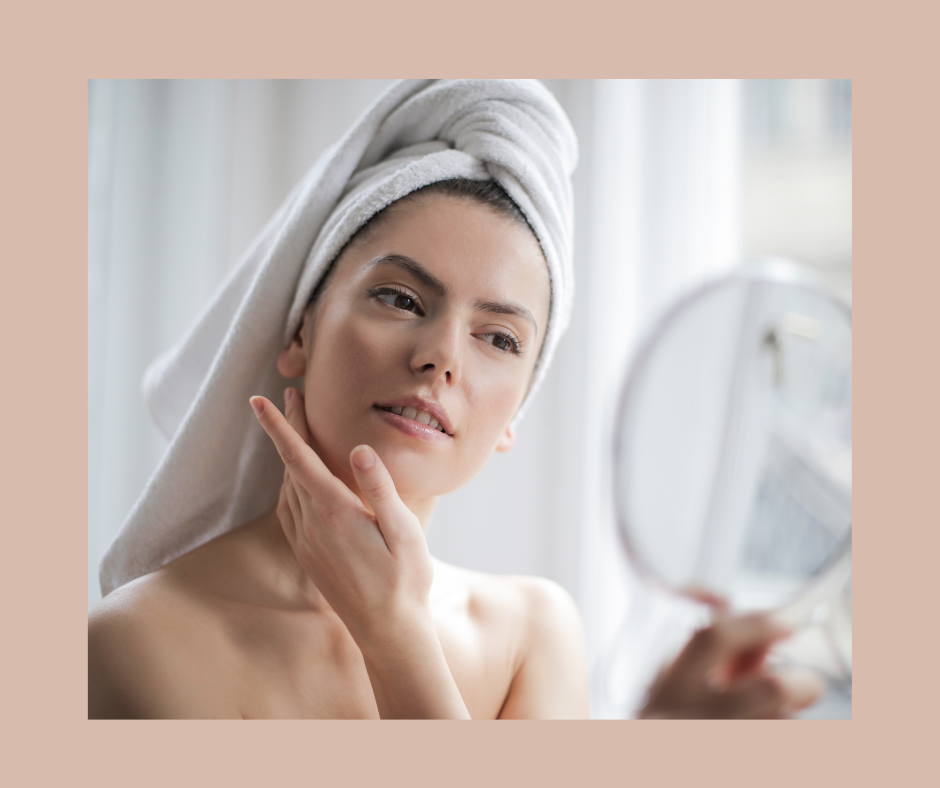
Your Skin is Talking—Here’s What It’s Saying
We often think of our skin as just a protective barrier or a canvas for beauty products. But what if we told you your skin is constantly communicating with you, offering valuable insights into your internal health, stress levels, and even your emotional state? It's true! Your skin is a remarkable organ, intricately connected to every system in your body. When something is off balance internally, it often shows up on your skin first.
Think of your skin as a highly sensitive barometer. It reacts to everything from the food you eat and the quality of your sleep to the amount of stress you're under and your emotional well-being. Learning to "listen" to what your skin is telling you can be a powerful step towards holistic health.
The Gut-Skin Connection: More Than Just a Feeling
One of the most well-documented links is the "gut-skin axis." Your digestive system plays a massive role in your overall health, and imbalances there often manifest as skin issues.
- Acne: Persistent breakouts, especially around the jawline or chin, can often point to hormonal imbalances, but they can also be a red flag for gut dysbiosis (an imbalance of good and bad bacteria in your gut) or inflammation.
- Rosacea: This chronic inflammatory skin condition, characterized by redness, bumps, and visible blood vessels, is frequently linked to gut issues like small intestinal bacterial overgrowth (SIBO) or H. pylori infection.
- Eczema and Psoriasis: These inflammatory skin conditions are strongly associated with a compromised gut barrier ("leaky gut"), where toxins and undigested food particles can enter the bloodstream, triggering systemic inflammation that shows up on the skin.
Stress and Emotions: When Your Mind Shows on Your Face
It is not just physical ailments that your skin reflects. Your mental and emotional state have a profound impact on your complexion. This connection is often called the "brain-skin axis."
- Sudden Breakouts or Flare-Ups: Feeling overwhelmed, anxious, or stressed? Your skin knows it. Stress triggers the release of cortisol, a hormone that can increase oil production, inflammation, and disrupt the skin's barrier function, leading to breakouts, eczema flares, or even hives.
- Dullness and Lack of Radiance: Chronic stress can impair blood flow to the skin, depriving it of essential nutrients and oxygen, resulting in a dull, lackluster complexion. Lack of sleep, often a companion to stress, further exacerbates this.
- Increased Sensitivity and Redness: When you are under emotional strain, your skin's protective barrier can become compromised, making it more reactive to environmental irritants and leading to increased redness, itching, or sensitivity.
- Fine Lines and Premature Aging: Long-term stress can accelerate the aging process by increasing oxidative stress and breaking down collagen and elastin, the proteins responsible for skin elasticity and firmness.
- Flushed Cheeks or Blotchy Patches: Intense emotions like embarrassment, anger, or excitement can cause an immediate physiological response that impacts blood flow to the skin, leading to flushing or blotchiness.
What Your Skin is Whispering—And How to Listen
How can you tune into your skin's messages?
- Be an Observer: Pay attention to patterns. Do breakouts always appear when you are stressed? Does your eczema flare up after eating certain foods?
- Connect the Dots: When you notice a skin change, consider what's been happening in your life. Have you been under more pressure? Eating differently? Sleeping poorly?
- Address the Root Cause: Instead of just treating the symptom, consider the underlying reason. If stress is causing your breakouts, focus on stress-reduction techniques. If gut issues are at play, consider dietary changes or consulting a nutritionist.
- Practice Self-Care: Prioritize sleep, balanced nutrition, regular exercise, and stress-management techniques like meditation or deep breathing. These are not just good for your mind; they are essential for glowing skin.
- Seek Professional Guidance: Do not hesitate to consult a dermatologist or a holistic health practitioner. They can help you decipher your skin's messages and guide you toward personalized solutions.
Your skin is an incredible messenger, offering a direct window into your internal world. By understanding its language and responding with conscious care, you will not only achieve healthier, happier skin but also foster greater overall well-being. So, take a moment today to truly listen—your skin is talking!
Your skin is not betraying you—it is communicating with love.
Let’s learn to listen.
